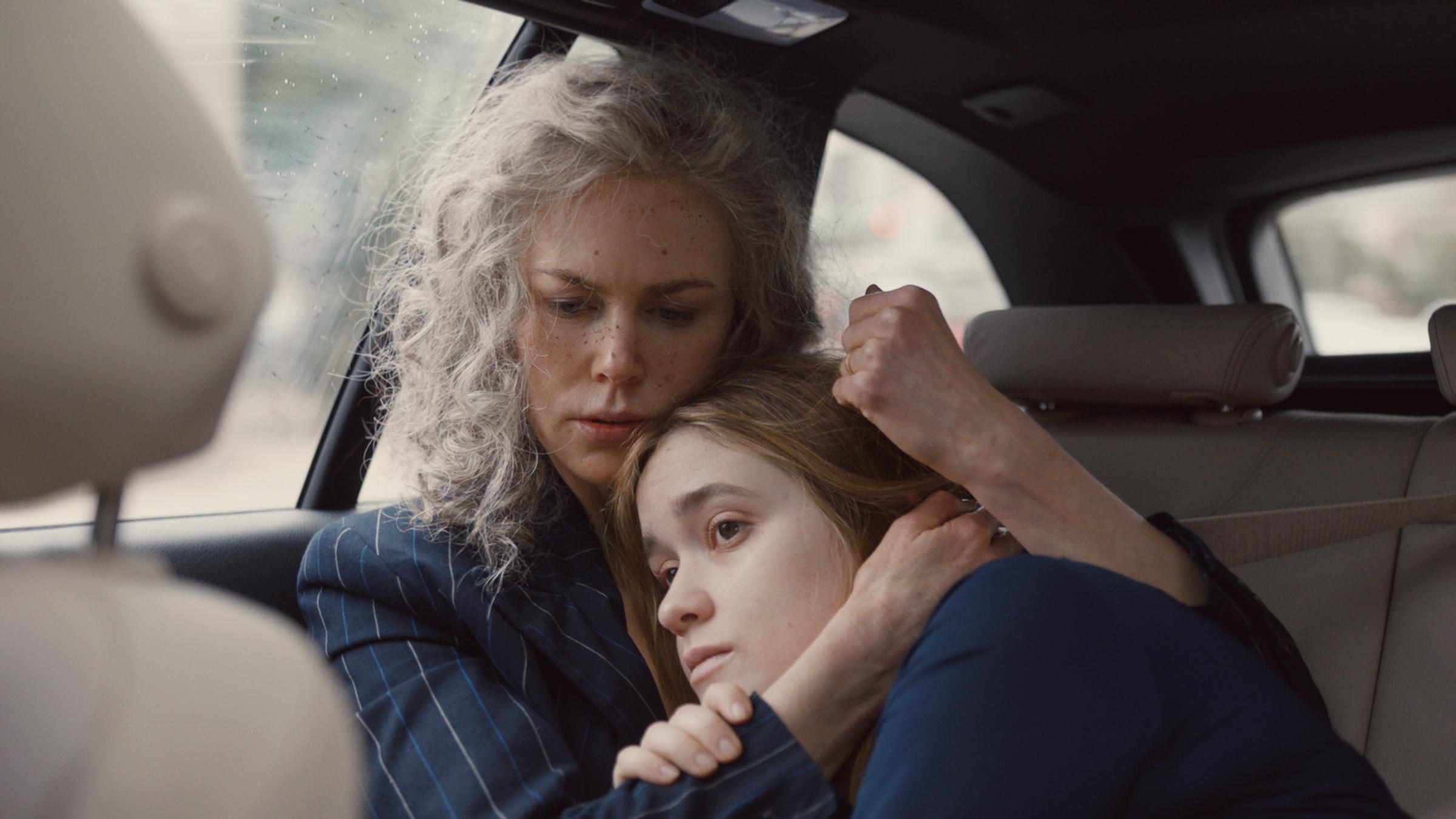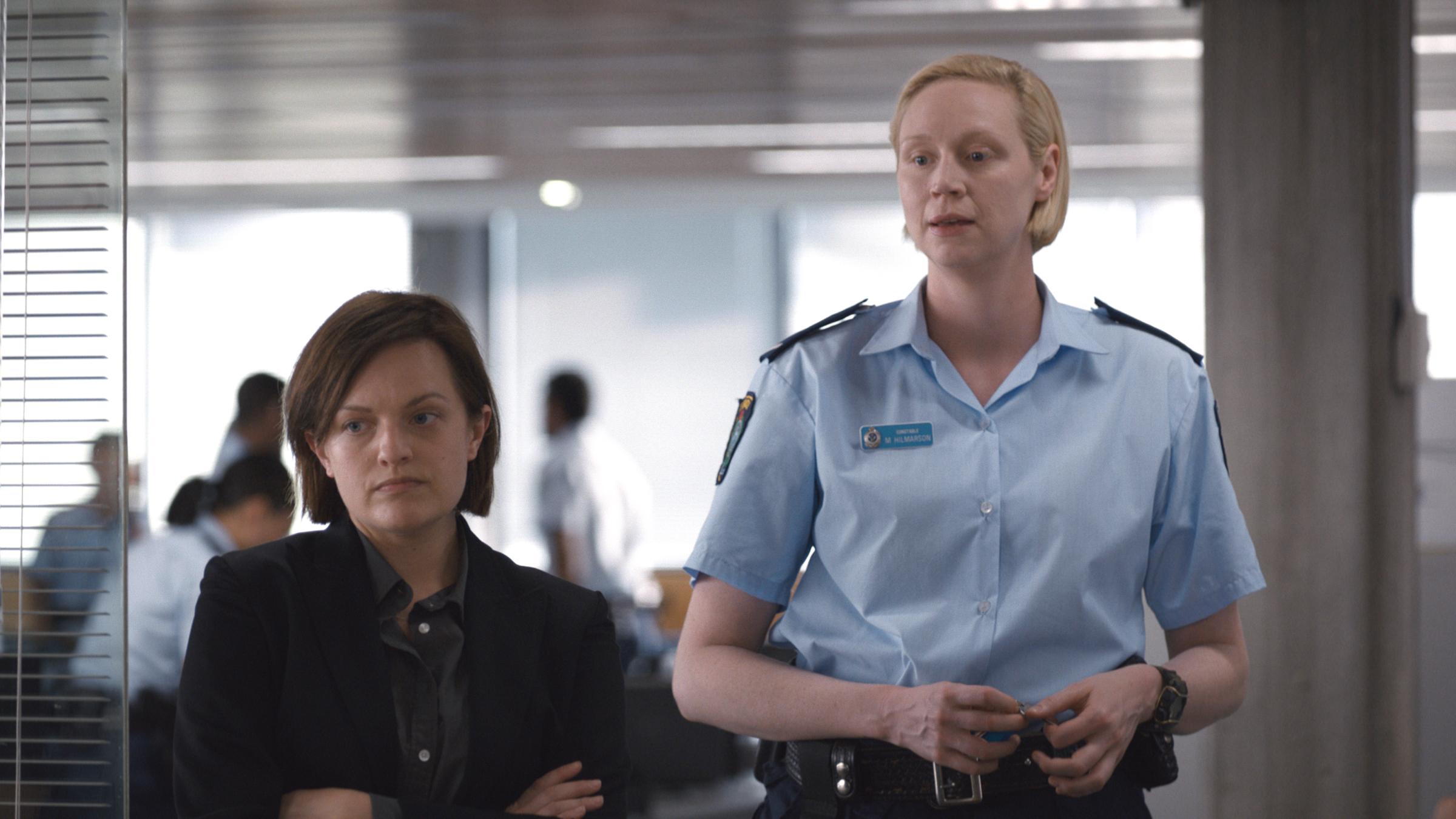Throughout her career, Jane Campion has wrangled with questions of womanhood and sexuality that many mainstream films and television shows ignore. She has brought her specific style, which melds the breathtaking and the heartbreaking with idiosyncratic humor, to projects like the 1993 Oscar winner The Piano and, more recently, the detective series Top of the Lake. The second season of that show is now underway on SundanceTV as Campion, the first female director to win the Palme d‘Or at Cannes, celebrates her career in a retrospective at the Film Society of Lincoln Center through Sept. 17.
Four years after the first season of Top of the Lake premiered, detective Robin Griffin returns to safeguard the women most ignored by society. Elisabeth Moss — who has also battled misogyny as Peggy Olson on Mad Men and June (a.k.a. Offred) in The Handmaid’s Tale — plays the hardened policewoman, whose foray into detective work was motivated in part by her own trauma as a rape survivor. After solving the case of an assault on a teenage girl in New Zealand in the first season, she travels to Australia to reconnect with her biological daughter Mary.
As Robin struggles with what role to play in Mary’s life — to the chagrin of Mary’s adopted mother, played by Nicole Kidman — she investigates the murder of a pregnant prostitute and uncovers an underground organization selling women as surrogates. The series reckons with fertility and motherhood, the sort of topics that have fueled Campion’s work for decades. TIME caught up with Campion at New York City’s Howard Hotel to talk about how her personal struggle with fertility inspired the story, how filming the series changed her opinion on sex work and her decision to cast Nicole Kidman and Game of Thrones’ Gwendoline Christie.
TIME: How did you decide there was enough story left to do a second season of Top of the Lake?
Jane Campion: It came slowly because it is important to me that you have the right ingredients, because you’re gonna be committed to it for a long time. Finally I thought I could wholly commit to a story really about female fertility [told] in a way that I would be satisfied.
Satisfied how?
I have had so many stressful misadventures in that field. So many women have, or I’ve heard from friends. As time ticks on, it’s a really big chapter in your life that may or may not easily happen, that you get to experience motherhood. We came up in this world as women feeling that we could do things. But this isn’t something you just do. It has to happen.
Right.
And it doesn’t always happen well. I’ve had miscarriages. I had a baby that died. But I really wanted a baby. I know I’m really not alone in that. So many people are grieving babies that never happened or looking for a pathway to be a mother.
In Top of the Lake, one of the main characters enlists an illegal surrogate to carry her baby. That’s a world that’s not often explored on television.
Every single woman on this planet has some sort of struggle with it. And it’s the sort of ovarian-interested material that is not the sort of thing guys are ever going to feel comfortable [writing] about. I think it’s been neglected, thought it is such a big deal for us.
But I work with an equal number of women as men, and I notice once it’s on the page they’re really interested in it too. They get the dramas, the pain, the anxieties. I think as women, sometimes we think that area of our life is somehow dull, boring, sad, something not worthy of dramatic interest. There’s blood involved, so it’s somehow icky. To me, it’s really important. And then, of course, the story isn’t just about having a baby but what you do as a mother when that baby grows up and makes choices of her own.
Mary is played by your own daughter, Alice Englert. I understand Nicole Kidman is a friend of the family. How did that affect their onscreen mother-daughter dynamic?
Nicole has known Alice since she was a baby because Alice was on the set, as a one-year-old, on Portrait of a Lady. I think she came to Alice’s 13th birthday party, which she made into a Goddess Party, celebrating her coming-of-age as a goddess.
I think that they were just a good match [onscreen]. Alice is a really good little actress. I remember when they were doing it, Nic just kept saying to me, “She’s good. I mean, she’s really batting up there with me.”

I spoke to Elisabeth Moss when Handmaid’s Tale was coming out. She said people always ask her about playing strong women, but she actually sees herself playing messed-up women who need to be strong in order to get themselves out of situations that they’re in. Would you describe Robin that way?
The woman I did the research for her character with — a Wellington, New Zealand detective — told me that she got herself into the police force when her sister tried to kill herself. The detectives came around, and one of them said, “Hey, you’ve got a good attitude. You should think about it, police force. I could mentor you.” And that’s how it happened.
She says that a lot of the police have very dark things in their background that, in a way, they don’t really deal with. And so there’s a sort of place where the criminals and the police meet. They get each other. That’s what I love about detective tales, because there’s always that tension that, as the detective goes toward the dark mind of the criminal, they too run the risk of being overwhelmed by it.
Feminists have long debated whether sex work can empower women. Where do you — and the show — land on that debate?
Well, you probably know that the sex industry is legal in Australia. And I think it’s fantastic that it is, because it protects the working girls, sex workers, and the community. There’s a much lower rate of STDs in the sex worker community than there is from the general population. It’s safer for everybody. And they get protection from the police. If they’ve got difficult clients they communicate with each other about difficult clients and put them on the blacklist. The impression I get is that they feel pretty empowered.
Did you speak to sex workers for research for the show?
All of our research really happened in a Asian brothel. And an organization with a grant from the government that helps regulate the brothels helped us locate that brothel, said who we were, and then we paid for our research with the women that ran the brothel. It was a sort of family brothel. They ate meals together, like we show on the show.
What I’ve been told is that it’s a very diverse industry, and they really suffer a lot of prejudice from lots of directions, and they’re very reactive, therefore, to criticism, and to standing up for what is theirs. I just saw a tiny corner of it, but at least I saw it. I loved the women very much and respected them for being truthful. It did turn around a lot of prejudices or ideas I had about what it really was.
We also meet this group of men who sit around and review prostitutes on a sort of Yelp for brothels. One of them literally has “troll” written on his computer. How did you come up with those characters?
I was thinking, I wonder if they review these brothels. So I started looking. And then I started to find these review pages. Unbelievable detail, disgusting, completely dehumanizing. It’s incredible that they really seem to want to help each other get the best deal for their dough. It seemed quite clearly that they were incapable of having a proper emotional relationship with a woman, and what they were trying to do was get intimacy with each other over their experience at the brothels.
And so I talked to a couple of guys, as well. But the ones that gave the really graphic descriptions, some of which is entered into the story, we decided to put them in there saying these nasty things to each other as sort of comic relief.
Honestly, I found them sort of scary. Just the demeaning things they say to women — it felt like shades of a few mass shooters we’ve had in America who we later find out wrote these horrible, misogynistic missives and that’s part of what motivates them.
It’s so sad, isn’t it. We wanted to look into their world and brought on these incredibly funny comedians to play them who were coming up with these great lines, like “fetus face.” But you feel confused as to whether you should be disapproving or enjoying them…or did you?
I definitely questioned whether one should laugh at those kinds of jokes.
Yes, you should. You should laugh whenever you can. You see, that’s our main thing on the show. We’re absurdists. I think we have grafted those skills that can make something both funny and frightening at the same time, without losing heart.

Gwendoline Christie plays this sort of sensitive type in need of attention and approval that’s very different from her personas on Game of Thrones or Star Wars. How did she get cast?
She wrote and said who she was, and I thought, “Wow! She’s amazing. I wonder if she can act.” Because they don’t actually act on Game of Thrones, they just exchange energy and grunts.
So I went and met her in London and we did some scenes together and we got on so well. When I started writing this cop friend for Robin, I imagined her as Gwendoline, and it just got very funny. And touching, at the same time, because Gwendoline is a comic genius.
She throws some great conundrums at people’s stereotyping of what a woman is, because she’s a goddess; women are supposed to come in small teeny packages, and she is not that. But she’s super femme. And I think that’s great. But she also gets hurt because of people’s wanting women to be small, in every which way. It frightens them if women aren’t these fragile things. She’s just so perfect.
The visual of Elisabeth Moss and Gwendoline Christie walking next to one another is great.
Right? Because Lizzie is so small. I was so annoyed at her for wearing little heels. I was like, “Elisabeth! Can we have those off?” But she wanted her legs looking longer, so we had to keep them.
More Must-Reads from TIME
- Caitlin Clark Is TIME's 2024 Athlete of the Year
- Where Trump 2.0 Will Differ From 1.0
- Is Intermittent Fasting Good or Bad for You?
- The 100 Must-Read Books of 2024
- Column: If Optimism Feels Ridiculous Now, Try Hope
- The Future of Climate Action Is Trade Policy
- FX’s Say Nothing Is the Must-Watch Political Thriller of 2024
- Merle Bombardieri Is Helping People Make the Baby Decision
Write to Eliana Dockterman at eliana.dockterman@time.com